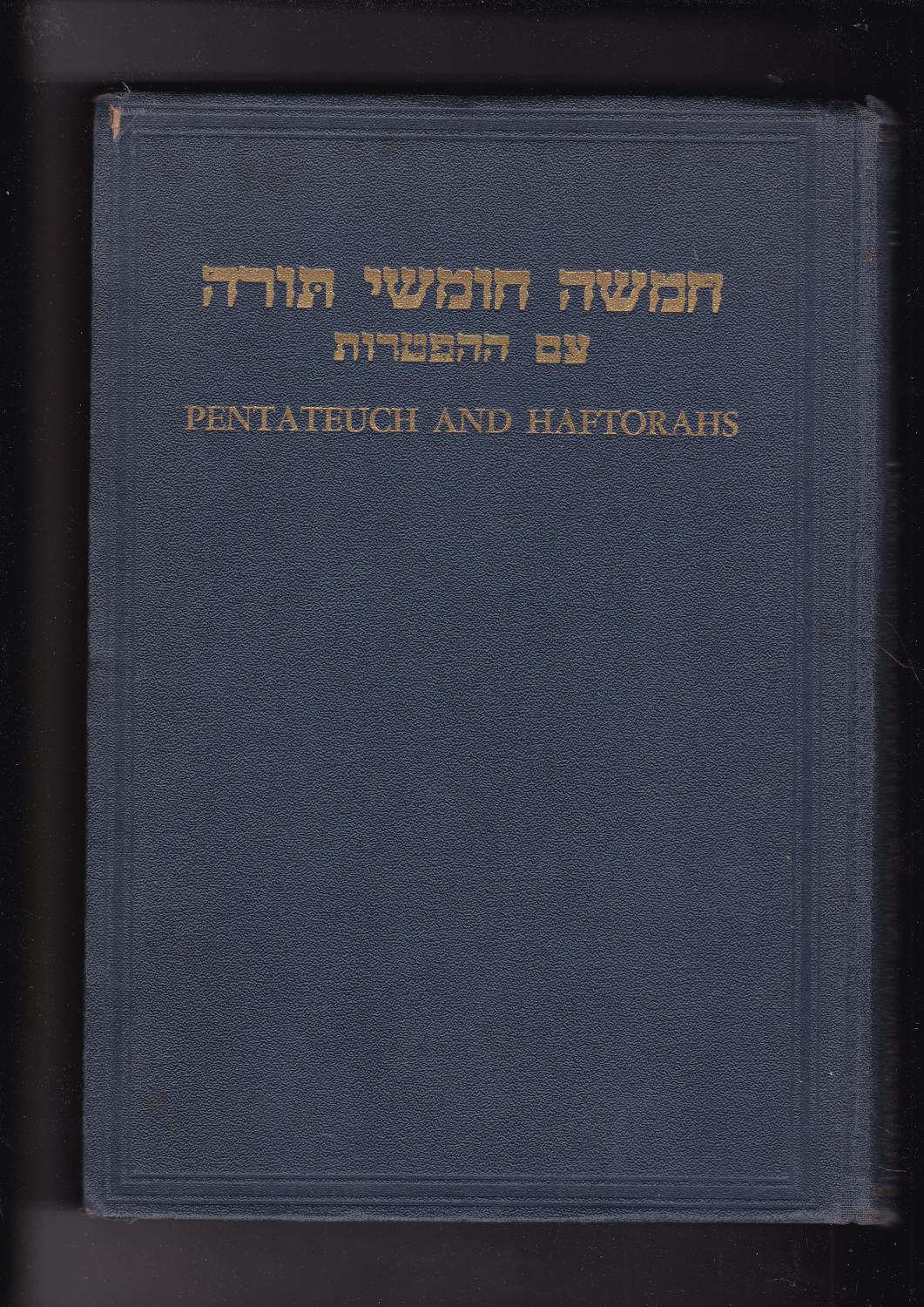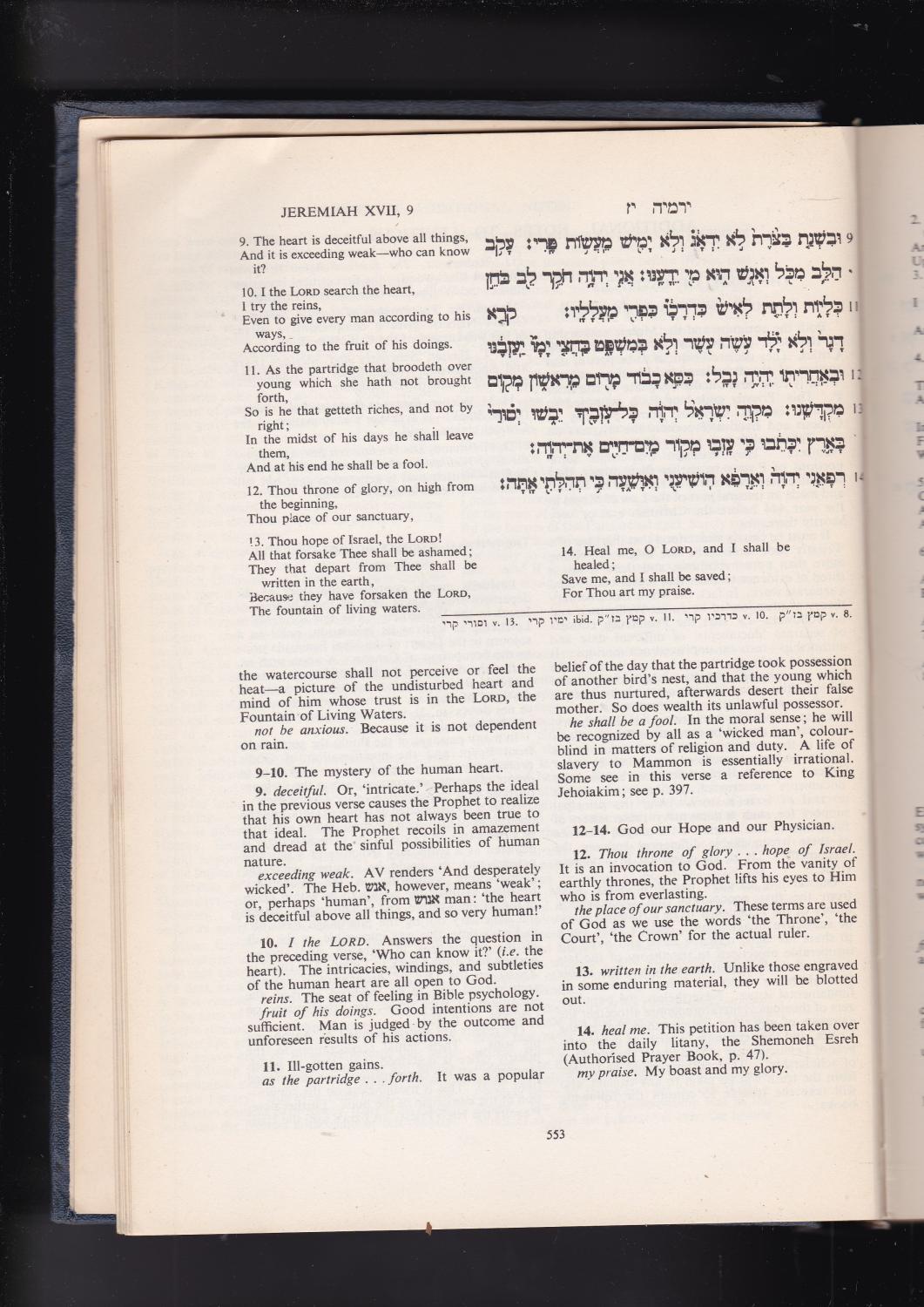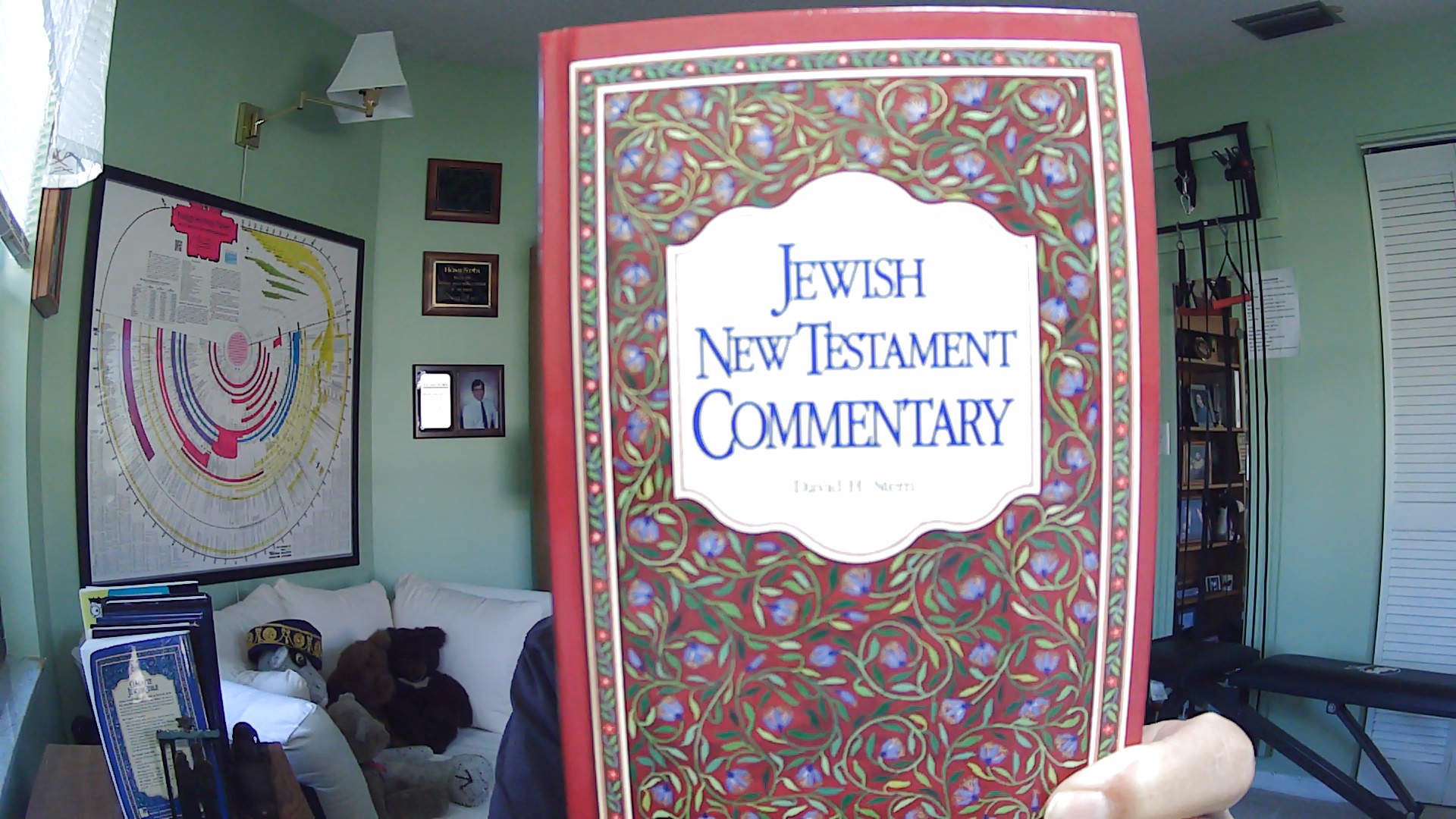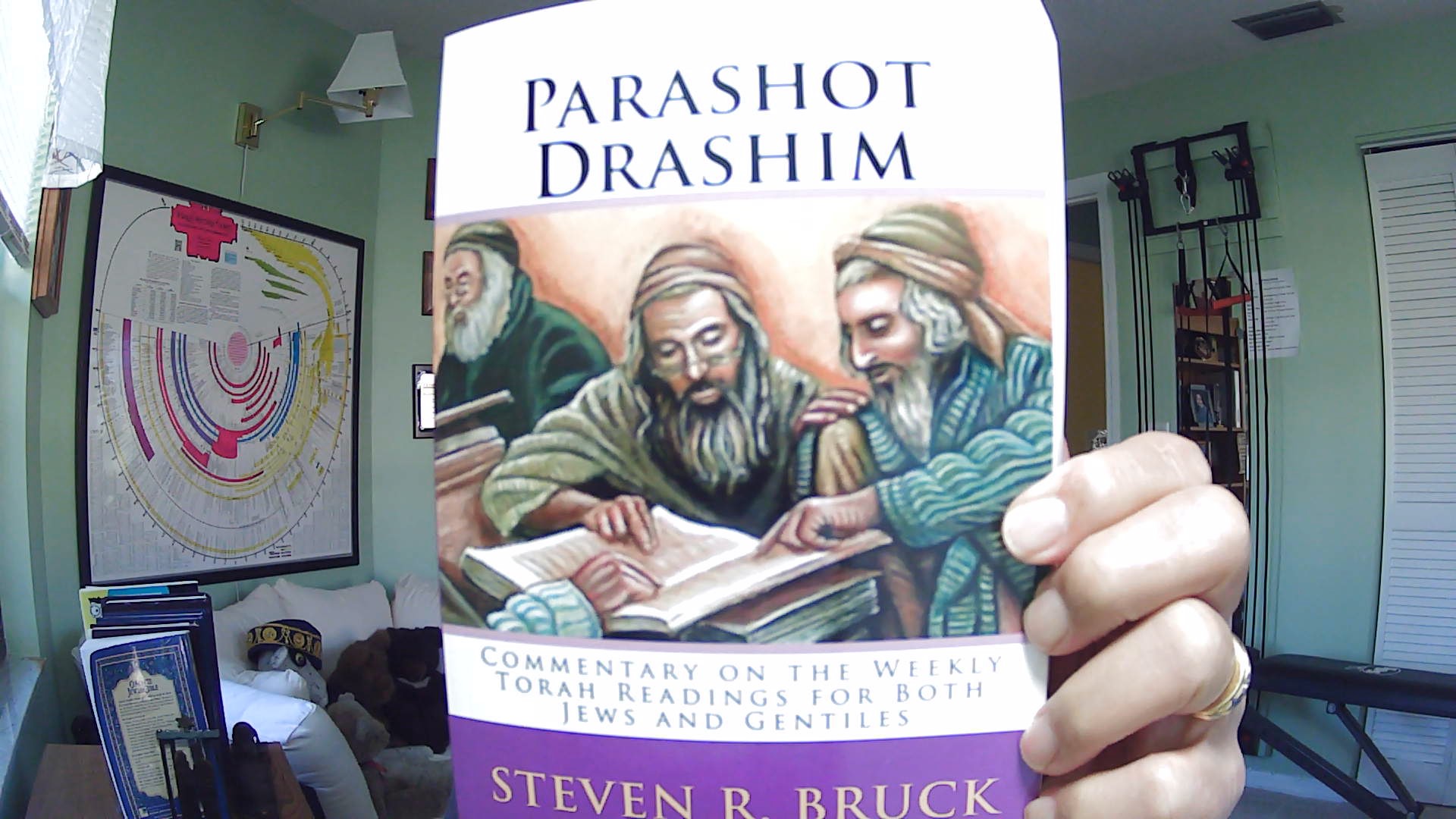So far in this series, we have reviewed those tools that can be used by the reader when trying to interpret, for themselves, what is in the Bible. These tools are valuable, and we should always look for what God has for us, alone, when we read his word.
If you prefer to watch a video, click on this link: Watch the video.
(PS: I have a new microphone so the sound levels will be good.)
But that doesn’t mean someone else doesn’t have a proper interpretation, or a message that he or she was given which can edify us. That is why there are some extra-biblical tools we should use, as well, when seeking out the meaning of God’s word.
One of my favorite books for studying the Torah is the Chumash. Here is the one I use, which is the Soncino edition:


“Chumash” is a form of the word חמשת ,which is Hebrew for the number 5, representing the first five books of the Bible, i.e. the Torah. This book has the Torah, the English translation, and a commentary on the passage, as well. There are also detailed commentaries at the end of each book of the Torah.
Besides the Torah readings (called the Parashah), it also has the Haftorah readings, which are sections from other parts of the Tanakh that are read after the Torah portion and used to enhance the Torah reading by showing how what we read was performed (or failed to be performed) in later history.
What I love most about the Chumash is that it is just so very Jewish. It is, if you ask me, essential for Gentiles who want to know what the Torah means to Jews to read this book, and use it constantly when they come to something in the New Covenant that refers back to the Torah so they can see what Yeshua or an Apostle was thinking about when they said what they did. I say this because the Messiah and his Apostles thought much closer to the way the commentator of the Chumash thought than any Gentile commentator ever could.
Other examples of commentaries are below:



These are commentaries I use when I want to verify or see what someone else thinks about a passage I might be wondering about; however, these are not the only ones out there. In fact, there are many, many different commentaries written by all types of people, so when you look for one, try to find one that as you peruse it (before buying, of course) you can see if it seems to be in line with your understanding.
By the way, I really recommend the commentary called “Parashot Drashim.” I happen to know the author really well and think he has a pretty good idea of what he is saying.
Commentaries are very useful tools for properly interpreting the Bible, but just as with any tool, you need to use the right tool for the job. What I mean is, if you want to become familiar with the “Jewish mindset”, make sure the commentary you get is a totally Jewish one, meaning not Messianic and certainly not written by a Gentile. You might be surprised, and maybe even a little dismayed, at the negative tone it might have when referencing Christian interpretations of the messianic passages.
On the other hand, when you want to know what the New Covenant is saying, then you need to get a commentary written by a Gentile because you won’t find any Jews who want to have anything to do with the New Covenant, unless it happens to be a Messianic Jew.
This covers today’s lesson, and next time we will discuss other types of extra-biblical resources you can use when you are trying to properly interpret the Bible.
Oh, yeah, one more thing…even though this is a teaching series, I welcome any comments or additions you feel you would like to submit regarding any of these lessons.
So, until next time, L’hitraot and Baruch HaShem!
